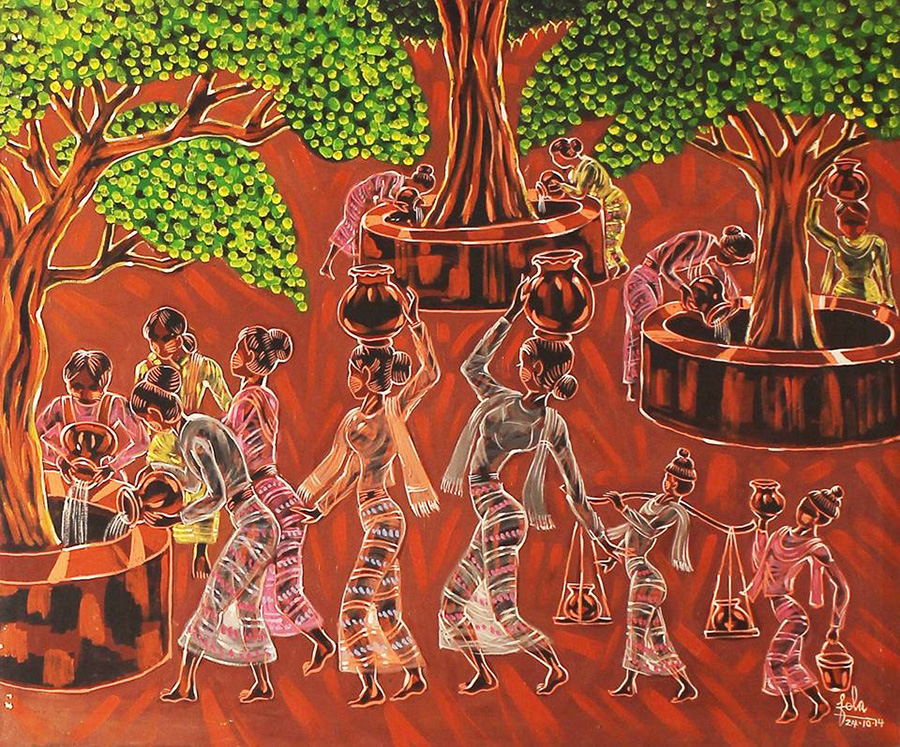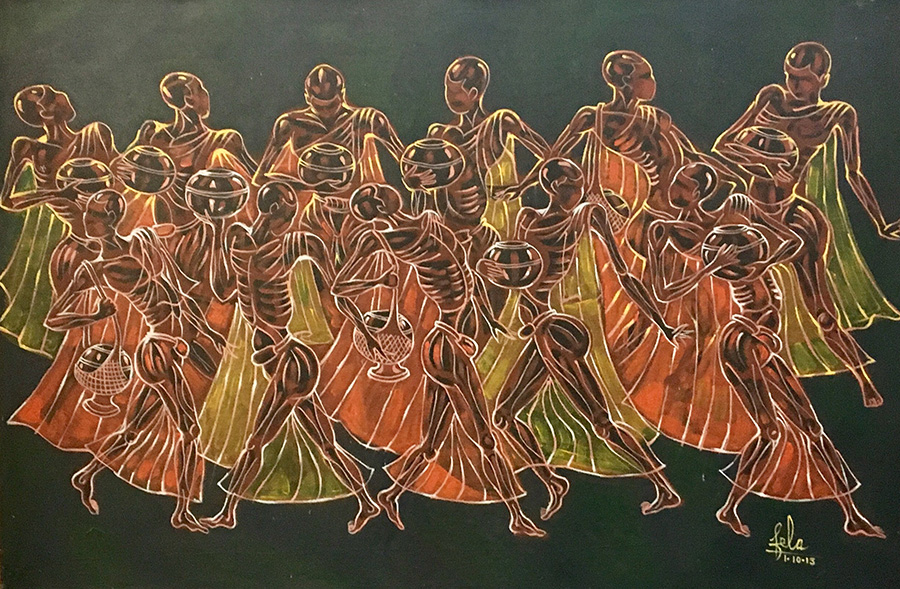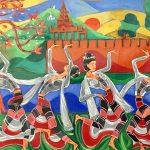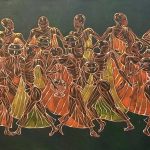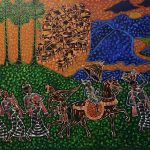The Irrawaddy Magazine |
- Rakhine Conflict Primarily Political, Not Religious, Seminar Told
- 8 Shan Men Accused of Links to Armed Group Sentenced to Jail
- Conflict over Methods Stalls Restoration on Part of Historic Monastery
- Arakan Group Says 7 Arrested Over Sittwe Bomb Attack
- EU Calls on Myanmar to Take Action to Save Shrinking Elephant Population
- Indian Officials Order Stop to Eviction of Tribal People from Tiger Reserves
- Rohingya Refugees Test Bangladeshi Welcome as Prices Rise and Repatriation Stalls
| Rakhine Conflict Primarily Political, Not Religious, Seminar Told Posted: 28 Feb 2018 04:29 AM PST CHIANG MAI, Thailand — The violence in Rakhine State is not essentially religious, but stems from the use of religion to achieve political goals, international scholars said on Wednesday. To promote religious freedom and tolerance, and to inform the public about the ongoing conflict in Rakhine State, a public seminar titled Religions, Violence and Conflict in Rakhine State was held at Payap University in Chiang Mai, Thailand, on Wednesday with the support of the U.S. Consulate in the northern Thai city. Acknowledging the complexity of the situation in Rakhine, the academics — many of whom have visited Myanmar and/or Bangladesh recently — shared their experiences and perspectives in an effort to better understand the conflict. The scholars participated in panels devoted to a number of topics including ethno-religious politics, the international relations dimensions of the conflict, and the Rohingya refugee crisis, as well as a follow-up discussion after a viewing of the documentary film Sittwe. "Religion is not the problem per se [in Myanmar], but the political use of the religion" is fueling the conflict, said Dr. Rey Ty of the Christian Conference of Asia, who has visited the country multiple times in recent years. In his talk to some 90 audience members, he laid out the different perceptions of the "Rohingya Refugee Crisis." Many in Myanmar, he said, prefer to refer to the group as "Bengali" Muslim interlopers from neighboring Bangladesh. While Myanmar sees the attacks by Muslim militant group Arakan Rohingya Salvation Army (ARSA) as acts of terrorism perpetrated by foreign-funded Islamic separatists, the international community sympathizes with the Rohingya as the "world's most persecuted minority" who are facing a "textbook example of ethnic cleansing," according to the UN. More than half a million refugees fled in the space of a few weeks as the Myanmar military, or Tatmadaw, conducted clearance operations in response to a coordinated series of ARSA attacks that killed nearly a dozen security personnel in August last year. Due to the enormous displacement of the Rohingya, the international community has leveled a lot of criticism at State Counselor Daw Aung San Suu Kyi for remaining silent on the issue, despite her status as a Nobel Laureate and an icon of human rights and democracy. The academics shared these concerns at the seminar but acknowledged that Daw Aung San Suu Kyi's hands are tied as she tries to reconcile with the Tatmadaw. Dr. Rey Ty stressed the importance of achieving a "reconciliation of the opposite perceptions" of people inside and outside the country. According to Daw Mon Mon Myat, a freelance journalist and graduate student at the Department of Peace Studies at Payap University who served as a moderator, the seminar's focus was on peace building, and the speakers' views reflected all sides. She told The Irrawaddy that the conference came to a shared view that "the conflict is not based on religious differences between Muslims and Buddhists" as portrayed in the current international media. "It is not about religion, it is due to the opportunists who focus on their own benefits. It is due to contending between those who attempt to create political benefits and the oppressors, which led to the flight of over 600,000 [residents of Maungdaw and Buthidaung townships in northern Rakhine State]," she said. As the participants at Wednesday's seminar included leaders of various religions such as Muslims, Christians and Sikhs and Buddhist monks, Daw Mon Mon Myat said she hoped "the message we obtain here can be disseminated to their communities through them." US consul general in Chiang Mai Jennifer Harhigh said in her opening remarks that the United States supported advocating for religious freedom as "increasing religious tolerance can reduce the likelihood of armed conflict, violent extremism and atrocities." "If we are not careful, religious belief, much like economic disparity, ethnicity or whole other elements, can be exploited to divide people, and to promote conflict," she said. The seminar also screened the documentary "Sittwe" by Jeanne Hallacy, an American filmmaker and youth educator. The film shows the views of two teenagers, a Muslim Rohingya girl and a Buddhist boy, both affected by the communal conflict in Rakhine State in 2012. The 20-minuute-long film – screened internationally in a slightly different version from the original planned for Burmese release – was blocked by government censors from being shown in Myanmar at the Yangon Human Rights Human Dignity Film Festival in June last year and to date remains banned in the country. Nevertheless, It premiered in September at the Freedom Film Festival in Malaysia, where it won Best Southeast Asia Short Documentary, and was screened internationally in the US in November. The organizers said their hope was that the screening of Sittwe would help raise awareness of the need for tolerance and reconciliation. "It [Sittwe film] carries an important message, that educating our young people is absolutely critical to raise the awareness of the need for religious tolerance and to prevent the spread of religious conflict," Harhigh said. The post Rakhine Conflict Primarily Political, Not Religious, Seminar Told appeared first on The Irrawaddy. |
| 8 Shan Men Accused of Links to Armed Group Sentenced to Jail Posted: 28 Feb 2018 04:19 AM PST YANGON — A court in Shan State on Monday convicted eight Shan men accused of fighting for the Restoration Council of Shan State (RCSS), an ethnic armed group, and sentenced them to prison terms ranging from three to 10 years. The Ho Pong Township court sentenced Sai San Sai to 10 years; Sai Peng Sa to eight; Seng Sai, Ohm Nut, Sai San and Sai Khun to seven; Sai Hla Tun to four; and Aike Ko to three. All eight men hail from Nang Kut village in Mong Pyin district and were convicted on four charges: unlawful use of a firearm; unlawful use of a walkie-talkie, illegal import of a vehicle; and attacking the military. The RCSS engaged the Myanmar military, or Tatmadaw, in Nang Kut in July, seizing weapons and killing some soldiers. Sao Myawaddy, the eight men’s lawyer, claims that after the fighting the Tatmadaw went house to house seizing homemade guns and bullets. She says the Tatmadaw detained her clients in the process and beat them before handing them over to police after 10 days. "They [authorities] did not consider any request from the victims. They even could not answer when I asked what they were being punished for in court,” she told The Irrawaddy on Wednesday. "Every local Shan has homemade guns. It is not something unusual that they should be punished for; it is their traditional practice.” Sao Myawaddy said one of her clients was merely the driven for a Buddhist monastery where the army seized the car the court used as evidence to convict them of illegally importing a vehicle. She said their lengthy trial, which lasted some seven months, was just theater. "It was just a show, having public court appearances. But they had already decided how to punish these local villagers," she said. "They tried to arrest members of the RCSS. When they could not arrest the RCSS they arrested whoever they could, so they arrested villagers," said Sai Naw Awng, a Ho Pong resident who has been in regular contact with the eight men since their arrest. The RCSS was among the original eight armed groups to sign the Nationwide Ceasefire Agreement with the government in October 2015, but it has periodically clashed with the Tatmadaw since. The post 8 Shan Men Accused of Links to Armed Group Sentenced to Jail appeared first on The Irrawaddy. |
| Conflict over Methods Stalls Restoration on Part of Historic Monastery Posted: 28 Feb 2018 03:15 AM PST MANDALAY – Restoration work on one portion of Mandalay's famed Shwe Nan Daw Kyaung monastery has stalled due to a conflict over the best method of reinforcing the weak and decayed floor of the building. Experts from the World Monuments Fund (WMF) and the Department of Archaeology and National Museums have different ideas on how to proceed with the reinforcement, especially underneath the historic monastery's west veranda, causing the two teams to delay the start of restoration work. The WMF experts have proposed using logs to reinforce the column underneath the west veranda, while department officials want to use steel pipes — an option the WMF strongly opposes. "In general, wood and steel bracing are meant to be temporary. But they want to use these as permanent, which we cannot accept in restoration of historic wooden buildings," said Jeff Allen, the WMF's project director of preservation at Shwe Nan Daw Kyaung Monastery. "I often try to figure out where this kind of steel pipes on historic buildings idea comes from. But in Myanmar it often is seen as the final solution for a monument. We can see examples in restoration in Bagan, done by the generals," he added. The WMF said authorities from the department seem not to want to replace the wood, but would rather support the wooden building with steel pipes — something that violates the Fund's standards. "Following international standards of preserving heritage [sites], we will only use wooden logs for wooden buildings, not steel pipes," Allen said. "If we can finish Shwe Nan Daw Kyaung the correct way, it will be an example for all Burmese people about how important it is to preserve the knowledge of the past to help us solve problems today," he added. According to the WMF, restoration of the Nayas, the mythical features that decorate the base of the monastery's columns, is ongoing. Only the reinforcement of the verandas has been halted. The standoff has been brought to the attention of the regional government, which plans to act as a negotiator between the two parties. "If they decide to use steel pipes instead of wood, we will not do the restoration of those parts. I can understand that what we talk about and want to do is so foreign and alien, especially for conservative types of people; that is why we must be patient until they accept us," Allen said. According to a regional government source, officials are examining the situation and plan to call a meeting of all parties involved in restoration projects at the monastery in March.  Restoration work on the monastery resumed in November after a delay of about a year due to a hold-up in grant money. A joint project between the Culture Ministry, the WMF and the U.S. Embassy, restoration began in February 2014, funded by the WMF. The project was initially expected to take two years. There were major delays in September 2014 due to hold-ups with the supply of teak logs that are to replace some of the monastery's decaying pillars. Major restoration work began in January 2016, only to be suspended again due to the shortage of funds. Further support for the preservation project came from the U.S. Ambassadors Fund for Cultural Preservation, which joined hands with Ministry of Culture. At the time, U.S. Ambassador Derek Mitchell said the WMF, which is based in Washington, would implement the US$500,000 project, adding that the budget would also cover training for Myanmar officials and craftsmen in preservation techniques. The Shwe Nan Daw Kyaung Monastery, a 19th-century traditional teak wood building, was originally covered with gold leaf and glass mosaics, and is known for the intricate wood carvings on its walls and roofs showing Buddhist myths. It was built as a royal chamber for King Mindon and located within the Mandalay Palace complex. Under Mindon's son, King Thibaw, the building was moved to a site outside of the Mandalay Palace moat and turned into a monastery. During World War II, aerial bombardments destroyed most of the historic buildings inside the Mandalay Palace complex, leaving the Shwe Nan Daw Kyaung Monastery as the only remaining original structure from the 19th-century palace. In 1996, Myanmar's Archaeological Department submitted the monastery for inclusion on Unesco's World Heritage List, where it remains under consideration by the UN body. The post Conflict over Methods Stalls Restoration on Part of Historic Monastery appeared first on The Irrawaddy. |
| Arakan Group Says 7 Arrested Over Sittwe Bomb Attack Posted: 28 Feb 2018 02:21 AM PST YANGON — Police in the Rakhine State capital of Sittwe have arrested an executive committee member of the Arakan National Council (ANC) and six other locals over a bomb attack that injured a police officer over the weekend, according to an ANC official. ANC general secretary U Tun Zaw said council college Ko Naing Soe, also known as Mae Lone, was arrested in Sittwe on Sunday. Tun Zaw said the police have filed charges against Naing Soe under multiple articles of the Counter-Terrorism Law that carry a minimum prison sentence of 10 years. He said his first court hearing was scheduled for March 12. Local police could not be reached for confirmation. In a video of four men in handcuffs at the Sittwe courthouse on Monday, posted online by Naing Soe’s brother, some of the men say they were “unfairly charged with many articles” and that their rights were being violated. "Arresting people with doubt [without evidence] will never bring us justice," says Naing Soe. Naing Soe was previously arrested by the military in Sittwe in 2009 for the possession of explosive devices and sentenced to eight years in prison. He was granted an amnesty by former President Thein Sein and freed in 2013, according to Tun Zaw.  He said Naing Soe is also a liaison officer for the Arakan Army, an ethnic armed group allied with the ANC, but not a combatant. With only 100 or so active fighters, the Arakan Army has been likened to more of a non-governmental organization by veteran journalist Bertil Lintner, who specializes in Myanmar’s ethnic armed conflicts. Three remotely detonated bombs rocked Sittwe on Saturday. One of the bombs went off in the backyard of a state counselor’s office. The others exploded near a courthouse and a land records office. Tun Zaw said authorities have detained about 20 locals in all since the attack. It is unknown how many of them remain in custody. "In general we accept police detention for questioning when carried out in line with the law, but this arrest was unfair and nonsense," he said. The motive for the attack, and who carried it out, remains unknown. It follows the fatal shooting of seven ethnic Arakan protesters by police in the Rakhine State town of Mrauk-U in mid-January and the subsequent stabbing death of a government administrator who was transferred out of the town a few days after the protest. It also follows the recent breakdown of efforts to see the ANC sign the Nationwide Ceasefire Agreement (NCA) along with two more ethnic armed groups on Feb. 13. "We negotiated with the ANC to sign the NCA until the last minute. But when the time comes to sign the NCA, the ANC didn't come along," said U Zaw Htay, spokesman for the President’s Office. A day before the signing ceremony, the ANC said discussions between the government’s Peace Commission and the ethnic armed groups’ Delegation for Peace Negotiations on Feb. 11 ended in deadlock. It said the commission refused to continue debate on eight contentious points and pressured the ANC to finish the negotiations after it signed the NCA. Tun Zaw said Naing Soe had attended the 21st Century Panglong Peace Conference in 2016 as an ANC representative and was selected to join the group’s delegation to the Feb. 13 signing ceremony before negotiations with the government broke down. He said his colleague has back problems and takes medicine to ease the pain, regularly traveling from Sittwe to Thailand for medical care. He added that the ANC has sent State Counselor Daw Aung San Suu Kyi and the Peace Council, which she heads, letters insisting that Naing Soe was not involved in Saturday’s attack and asking for his release. The ANC was established in Thailand in 2004 as an umbrella organization for several groups, including the Arakan Liberation Party, the All Arakan Students Youth Congress, the Arakan Women’s Welfare Association, the National United Party of Arakan, the Rakhine Women’s Union and the Democratic Party of Arakan. It is unclear whether all of them remain active. The post Arakan Group Says 7 Arrested Over Sittwe Bomb Attack appeared first on The Irrawaddy. |
| EU Calls on Myanmar to Take Action to Save Shrinking Elephant Population Posted: 28 Feb 2018 01:16 AM PST YANGON—The European Union urged the Myanmar government to strengthen efforts to protect its wild elephant population, which is on the brink of extinction due to poaching to supply the illegal trade in ivory and skins, as well as to end the open sale of elephant and other illegal wildlife parts in markets in its major cities, at popular tourist sites and along its borders. In a statement to mark World Wildlife Day on Saturday, more than two dozen ambassadors of the European Union and its member states warned that Myanmar's wild elephant population would be wiped out in a matter of years as poaching for tusks and other parts remains a huge challenge globally with Myanmar facing an "unprecedented elephant skinning crisis". In recent years, the Myanmar government has been working on strengthening the Biodiversity and Protected Areas Law, establishing more than 40 protected areas for wildlife, developing action plans for elephants and tigers, training and deploying rangers, and instituting wildlife training for government staff about the illegal wildlife trade. The EU and its member states have supported some of these efforts through the provision of technical support and capacity building. "In particular, we would recommend that the Government of Myanmar ends the open sale of elephant and other illegal wildlife parts, which today are widely sold in markets in Yangon, Mandalay, Kyeikhteeyoe and along Myanmar's borders," the statement said. According to WWF-Myanmar, at least one elephant is killed by hunters in Myanmar every week. Elephant skin, tail hairs, teeth and ivory are sold at tourist sites such as the Golden Rock (Kyaiktiyo Pagoda in Bago Region), while ivory is sold in Yangon and Mandalay. Large markets also operate in the 'Golden Triangle' border area Myanmar shares with China, Laos and Thailand. In such markets, elephant skin is sold dried for traditional 'medicine' or polished into beads and sold as lucky charm bracelets. The tail hairs are put into silver rings and worn for luck. Last month, the WWF-Myanmar met with the trustee members of the Shwedagon Pagoda in Yangon to hold an awareness program for souvenir shop owners at the pagoda stairways to educate them on the harm done by selling ivory and other wild animal related objects. The EU statement released on Wednesday added that as long as these markets continue to sell illegal wildlife products, Myanmar's wildlife will be at risk, and Myanmar's position as a global and regional illegal wildlife trade hub will continue and grow as other countries in the region close their domestic markets. China shut its domestic ivory market in January this year and Hong Kong has also committed to ban ivory trading. "Concrete action, such as developing a more robust legal framework in line with global standards — and ensuring its effective enforcement — would send a clear message that Myanmar has a zero-tolerance approach to wildlife crime," the statement said. The EU ambassadors also encouraged the government to take action now so that Myanmar can attend the 2018 London Conference on Illegal Wildlife Trade in October, not only to renew its commitments to the 2014 London Declaration on the Illegal Wildlife Trade, but also to take up its place as a regional leader in the fight against the illegal wildlife trade. In mid-February, the government launched The Myanmar Elephant Conservation Action Plan (MECAP), a strategy for the next 10 years (2018–27) with the overall aim of securing viable and ecologically functional elephant populations in Myanmar for the next century and beyond with support from international and local organizations. According to the Ministry of Natural Resources and Environmental Conservation, 18 wild elephants were poached in 2016, and 30 were killed last year. The current population is estimated at just 1,400-2,000, compared to 10,000 in 1997. The post EU Calls on Myanmar to Take Action to Save Shrinking Elephant Population appeared first on The Irrawaddy. |
| Indian Officials Order Stop to Eviction of Tribal People from Tiger Reserves Posted: 27 Feb 2018 09:25 PM PST BANGKOK — An Indian government agency for indigenous people has asked the forest ministry to stop evicting tribal people from tiger reserves, highlighting the growing tensions over land use in the country. The National Commission for Scheduled Tribes (NCST) asked the Ministry of Environment and Forests to ensure that its tiger conservation policy does not threaten the rights of indigenous people. It also said that those who are asked to move from core tiger habitats must be adequately compensated and given land. The environment ministry’s National Tiger Conservation Authority (NTCA) issued a notice last year asking 17 Indian states to suspend the granting of rights to tribal and other forest dwellers in all critical tiger habitats. NTCA officials denied that their policy hurts tribal forest dwellers. “It is a wrong notion that tribals are being evicted,” Debabrata Swain, an additional director general at the NTCA, said on Tuesday. “It is entirely voluntary; we ask them if they would like to move from core tiger habitats and protected areas. If they agree to the rehabilitation terms, then they move,” he told the Thomson Reuters Foundation. The NTCA is studying the NCST’s order, which it received on Monday, and will respond in time, Swain said over the phone. India’s Forest Rights Act gives indigenous people and forest dwellers the right to harvest and use forest resources to maintain their traditional livelihoods. More than a fifth of India’s 1.2 billion population was expected to benefit from the 2006 law covering vast areas of forest land roughly the size of Germany. But implementation has been slow and conflicts between states and indigenous people have risen as more land is sought for industrial projects in one of the world’s fastest growing economies. Wildlife tourism is also a growing money-spinner, and hundreds of tribal villagers have been evicted in sometimes violent clashes from land reserved for tigers, elephants and rhinoceros. Last November, advocacy group Survival International asked tourists to boycott India’s tiger reserves until the rights of indigenous people in them are upheld. Officials must ensure their forest rights are settled, and offer more compensation, said Rahul Choudhary, co-founder of non-profit Legal Initiative for Forest and Environment. “These are people who have lived in the forest for generations. The government must offer better terms for their rehabilitation,” he said. The post Indian Officials Order Stop to Eviction of Tribal People from Tiger Reserves appeared first on The Irrawaddy. |
| Rohingya Refugees Test Bangladeshi Welcome as Prices Rise and Repatriation Stalls Posted: 27 Feb 2018 08:49 PM PST KUTUPALONG REFUGEE CAMP, Bangladesh — The first Rohingya refugees who arrived on Jorina Katun’s farmland in Bangladesh last year were worn out and traumatized after fleeing violence in neighboring Myanmar. They wept and begged to stay, and Katun, moved by their plight, said yes. “I really regret that,” she said. “They said they would stay for only a month. They’re still here and more are coming.” Katun now has 25 Rohingya families living on a patch of land where she used to grow rice and vegetables. Since August, nearly 700,000 Rohingya have crossed from Myanmar’s Rakhine State into Bangladesh. Makeshift camps housing the Rohingya sprawl across thousands of acres of what was once a government forest reserve, butting up against — and sometimes overwhelming — Bangladeshi homes and land. Jorina Katun lives on the edge of the largest such camp. Officials and aid workers fear that the welcome is wearing thin, due to the unprecedented number of refugees and growing doubts over whether Myanmar will ever take them back. Repatriation was due to begin in January under an agreement signed by Myanmar and Bangladesh. But the plan has stalled due to safety and logistical concerns, and meanwhile Rohingya continue to flee across the border. “We’ve accommodated them, but for how long?” said Kazi Abdur Rahman, a deputy district administrator in Cox’s Bazar. “Our crop fields are destroyed. Our forests are destroyed…It’s a huge impact for the whole community.” So far, local people have been remarkably tolerant, with many feeling duty-bound to help fellow Muslims they see as being oppressed because of their religion. There have only been a handful of anti-Rohingya protests, all small and peaceful. But many also blame the Rohingya for driving up food prices and stealing jobs, and officials worry that the refugees bring with them an increased risk of disease, militant activity and drug trafficking. Residents have been told to report any Rohingya seen outside the camps, said Rahman. “It’s for our security, so they can’t get up to any terrorist activity,” he said. He said he had no evidence that the Rohingya were involved in crime, but noted they were poor, desperate and “very vulnerable to evil forces.” The Cheapest Worker Before the current crisis, Bangladesh was already home to 300,000 Rohingya refugees who had fled previous bouts of violence in Myanmar. Now, in Ukhia and Teknaf, two sub-districts near the Myanmar border, Rohingya outnumber local people by about two to one. Residents of Ukhia and Teknaf were already among Bangladesh’s poorest and by some measures as deprived as the refugees, according to ACAPS, a Geneva-based think-tank that analyses humanitarian responses. Seven in 10 families — both Bangladeshi and Rohingya — struggled to get enough to eat, ACAPS found. Little of the land around Cox’s Bazar is suitable for farming, so Bangladeshis have to buy about 80 percent of their food in local markets, said ACAPS. The price of that food is rising, said Hamidul Hoque Chowdhury, a college principal who heads the Ukhia branch of the Awami League, the party of Prime Minister Sheikh Hasina. Six months ago, 1 kg of potatoes cost 20 taka ($0.24); it has since tripled in price to 60 or 70 taka. The price of fish has doubled, he said. “The local people are now silent. They’re not shouting now. But they’re not happy,” said Chowdhury. “Tensions will definitely rise.” Chowdhury, who helped organize a small anti-Rohingya protest in Ukhia in January, said Rohingya were competing with Bangladeshis for unskilled labor jobs, the main source of income for about half the local population. Faruk Ahmed, 73, a local farmer, said he hired Rohingya laborers because they were cheap, plentiful and hard-working. “Bangladeshis want 500 taka ($6) a day, but Rohingya will take 300 taka,” he said. “I’ll hire the cheapest worker.” Rohingya Island Partly to ease the congestion at the camps, Bangladesh is accelerating a controversial plan to temporarily relocate 100,000 Rohingya on a remote island in the Bay of Bengal. H.T. Imam, an advisor of Prime Minister Sheikh Hasina, said the refugees must be kept apart from Bangladeshis. “In the past the Rohingya spread out and caused serious law and order problems,” he said. Humanitarian groups said they were also looking for ways to support the Bangladeshi community. Of the $950 million budget currently being requested from donors for March to December, a quarter had been earmarked for projects that will directly benefit Bangladeshis, said UN host community liaison Maurice Dewulf. There are “no major signals yet” of problems between Bangladeshis and locals in Cox’s Bazar, Dewulf said, but such problems become more likely the longer a refugee crisis lasts. The Rohingya families camped out on Jorina Katun’s land are also doing what they can to keep the peace, paying Katun between 300 and 600 taka ($3.50 to $7) a month in rent, says refugee Bodi Alam. The Bangladesh Army, which oversees security in the area, said it forbids local people to charge rent. “But we still pay,” said Alam. Without such payments, there would be quarrels with the Bangladeshis. “They will say ‘go from here, this is our area, these are our houses, this is our land,'” he said. The post Rohingya Refugees Test Bangladeshi Welcome as Prices Rise and Repatriation Stalls appeared first on The Irrawaddy. |
| You are subscribed to email updates from The Irrawaddy. To stop receiving these emails, you may unsubscribe now. | Email delivery powered by Google |
| Google, 1600 Amphitheatre Parkway, Mountain View, CA 94043, United States | |















